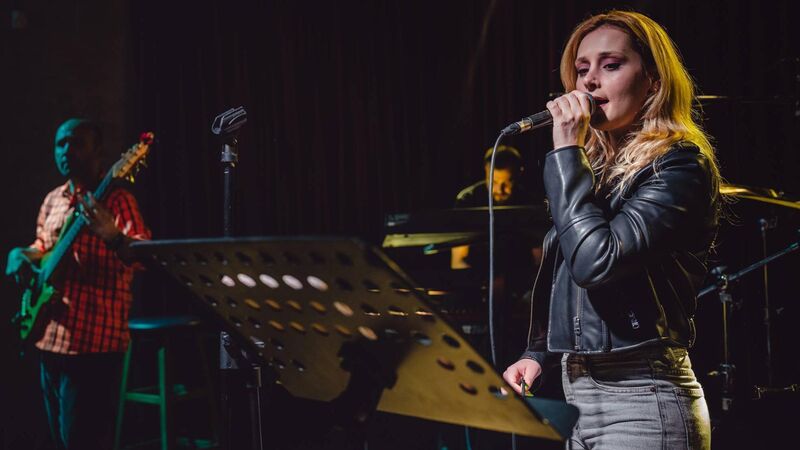Tom Dunne: It's harder than ever to make money in the music world

The Basic Income for Arts scheme has been allowed many people to continue making music in an era when it often doesn't pay. Picture: iStock
I was triggered I won’t lie. When I heard the Basic Income for the Arts (BIA) described as a “bit of an indulgence” I sat up in bed. I was on holiday, but I tried to go home.
“What are you at, you eejit?” my wife asked. “I have to write something,” I told her, “I can’t stand idly by.” I was talked down. The All You Can Eat Breakfast buffet will do that. But I haven’t been so triggered since being asked “Are you still at the auld music?” by my Uncle John. I’ve calmed a bit now, so let’s do this, let’s explain.
The BIA is a government scheme to provide €325 a week to artists and creative arts workers. It is a pilot scheme introduced in April 2022 and extended to February 2026. Its aim was to address the financial instability in the sector. About 8,000 applied, and 2,000 were randomly chosen.
The pilot aimed to evaluate the impact of such an income on artistic practice, mental and physical health, and overall financial stability within the arts community. A recent Department of Tourism, Culture, Arts, Gaeltacht, Sport and Media report concluded the stipend improved their mental health, made them feel more empowered and gave them much more stability in their life and work.
But it is due to end next February. So now officials from the Department of Culture are negotiating with their counterparts in the Department of Public Expenditure (DPER ) on a successor to the scheme. Any further scheme would have to be agreed as part of the Budget negotiations. There is talk of resistance from DPER to the scheme continuing in its current format. Hence the debate.
I think it is a very good thing. I know people who got it. The effect on their feeling of self-worth was astounding. But I also know more you didn’t get it and the daily struggle many of them have to continue to make music is sobering. It isn’t easy and it never was, but it’s getting harder.
The changing landscape of music is making it particularly harder for working class artists to stick at it. To paraphrase John Lennon, A Working Class Hero is getting harder to be. Or to quote Noel Gallagher, “the working class can’t afford to be in bands these days.”
It was one of the great ways out. Bands like Oasis, The Stone Roses, Pulp and the Arctic Monkey often went on the dole, wrote songs and played local pubs grassroots venues. But that is ending. In the UK, 35% of those venues have closed in the last few years. It will only get worse.
So, new bands like Coldplay or Last Dinner Party are increasingly middle class. Chris Martin’s school fees were £45,000 a year. Abigail Morris of The Last Dinner Party, attended the prestigious Bedale’s School in Hampshire where fees are £42,500 a year. It is renowned for fostering creativity and confidence.
To quote John again, they are all genuinely, “clever and classless and free.” And, to bring Morrissey in here, their music, “says nothing to me about my life.” How could it? I think my school, James Street CBS was probably built for less than £42,500.
A recurring theme I have encountered in interviewing many of the major talents of our age – Richard Ashcroft in particular stands out – was time spent by them on the dole. Time when they eschewed parental and societal advice to “get a job” and stuck to their vision.
We are the beneficiaries of such vision. Next time you sing Bittersweet Symphony to yourself at a time of stress think of Ashcroft surviving on cigarettes and coffee to make that happen.
Not everyone has that resolve, that belief, that steeliness. For those who don’t, the €325 a week would go a long way. That goes for young and old.
It is also a virtuous circle. A Deloitte music report in 2015 concluded that for every €1 invested in music, over €4 was returned to the economy. And if the artist generates income, it and the €325 a week will obviously be taxed.
The BIA is a good thing, and if sponsoring artists is an “indulgence” they should repaint the ceiling of the Sistine Chapel. Pope Julius II wasted over 3,000 ducats on that. Michealangelo was “only” a sculptor up to that point. Thought he was being “set up to fail.” But he had a BIA from the Pope so he gave it a go.


